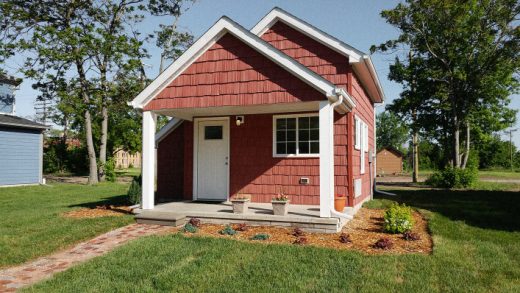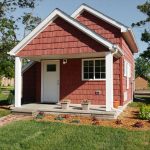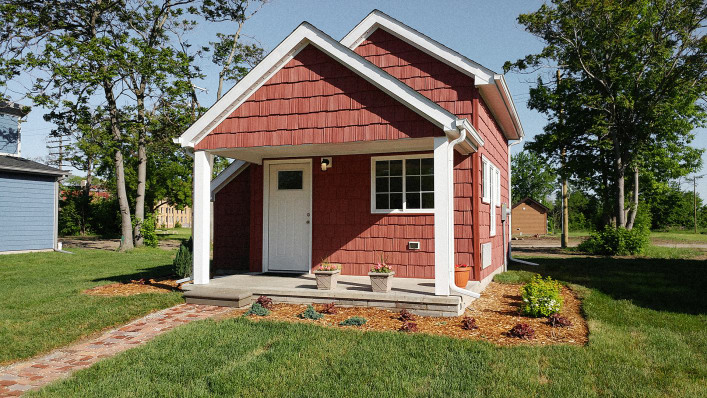These Tiny Houses Help Minimum Wage Workers Become Homeowners
If you live in Detroit and make only $10,000 a year, you still might be able to buy a newly constructed house. On two vacant blocks in the city’s northwest side, a new neighborhood of tiny houses was designed to help people living in poverty become homeowners.
Through a rent-to-own program, residents will pay $1 per square foot in rent each month. For a 250-square-foot house, for example, rent is $250, when a similar home in Detroit might normally cost twice as much. After a maximum of seven years, the house can be fully paid off.
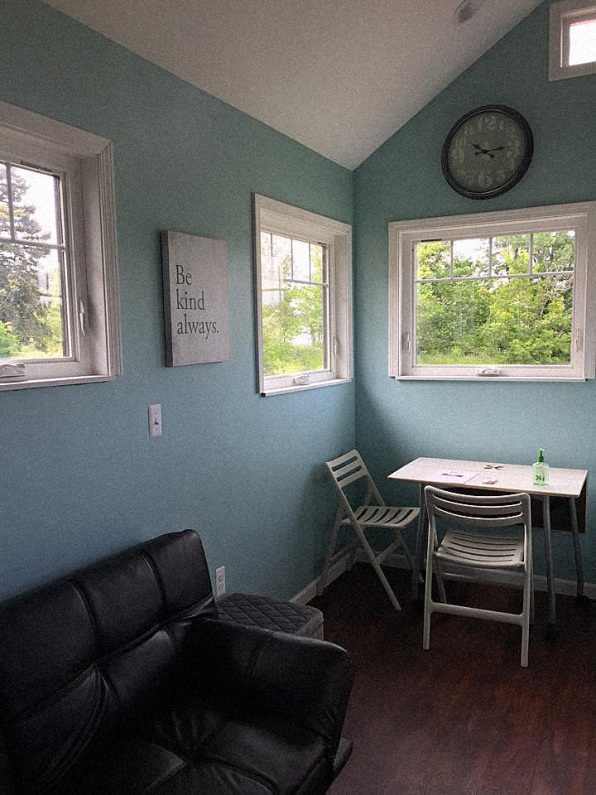
“Poor people lack an asset,” says Faith Fowler, a pastor and the executive director of Cass Community Social Services, the local nonprofit that created the program. “They don’t have anything that they could use as collateral, they don’t have anything they can sell to climb the economic ladder, if you will. They don’t have anything to leave their children. We saw this as the start for poor people–people making as little as $10,000 a year can end up owning a home in seven years.”
In some other programs, such as homes built by Habitat for Humanity, residents are required to have a mortgage. “People making that small amount of money can’t qualify for a mortgage,” she says. “So they’re essentially locked out of housing that serves as a piggyback for the rest of us. In addition to the pride of having a place you can call your own, the beginning of wealth, or the security of having an asset you can call your own, was very important to us. More important than the tininess of the home.”
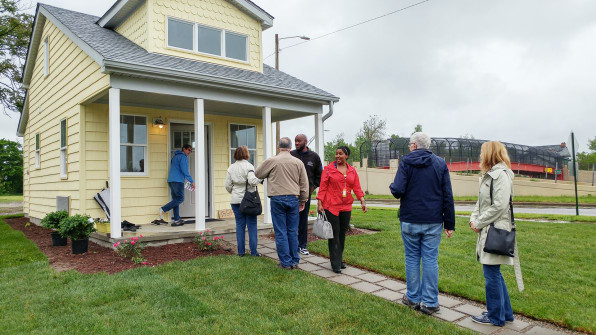
The houses–which range in size from 250 to 400 square feet and have a basic bathroom and kitchen but no bedroom–are funded by private donations and foundations. While professional builders handle the foundation, shell, roof, electrical, and plumbing, volunteers do the rest, from installing cabinets to a deck in the back. Some of the materials are also donated, helping keep the cost around $40,000 to $50,000 ($15,000 of that is the cost of the foundation and connecting to city utilities). “For about the price of an expensive car, we can give you a pretty nice home,” Fowler says.
The tiny size, along with quality insulation and windows, also makes utilities cheap. Even when the weather is coldest, residents should only pay around $30 a month to keep the house warm and the power on.
Each month, residents are required to take classes in financial literacy and home maintenance. Nearby, the Cass Community headquarters provides access to social services like mental health counseling and education and nutrition programs.
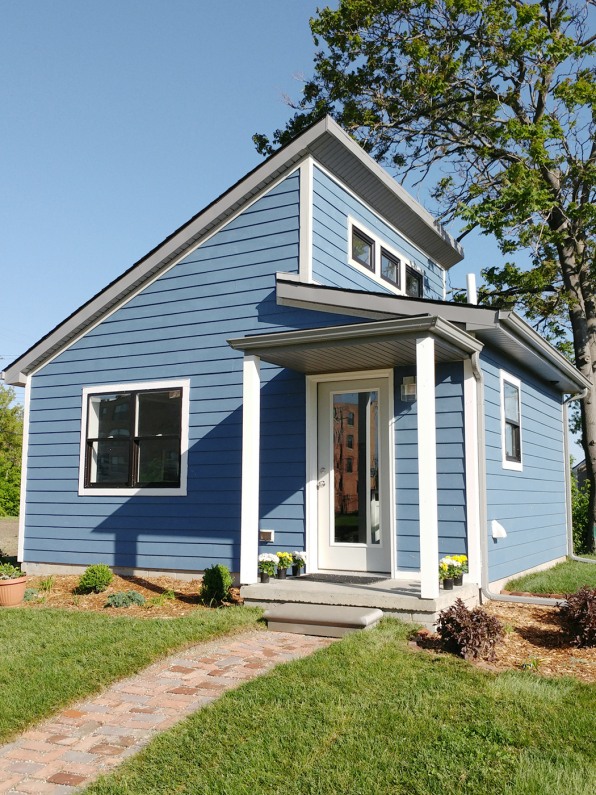
It’s a model that the organization thinks could work elsewhere. “Certainly for cities that have an abundance of relatively inexpensive land, this is a great proposition,” says Fowler. “It also makes sense in some rural areas. Everywhere I travel, I see homeless people now. It’s not just cities anymore. Two or three tiny homes might make a tremendous difference in a rural setting.”
Seven homes have been completed so far, with 25 tiny houses planned in total for the neighborhood. In a second phase, the organization hopes to build 10 slightly larger homes for families. Because Detroit didn’t have zoning restrictions or minimum size requirements for tiny homes, the process has been relatively straightforward. The first residents are expected to move in this month.
As the project provides housing, it’s also transforming a blighted neighborhood. “The neighbors are ecstatic,” says Fowler. “You get the sense that with these tiny, bright, beautiful new homes there’s a renaissance occurring in a small way in a neighborhood that hasn’t had much to celebrate for a long time.”
With monthly mortgage payments at $ 1 a square foot, the houses offer a path to home ownership in just seven years.
If you live in Detroit and make only $ 10,000 a year, you still might be able to buy a newly constructed house. On two vacant blocks in the city’s northwest side, a new neighborhood of tiny houses was designed to help people living in poverty become homeowners.
Fast Company , Read Full Story
(42)

